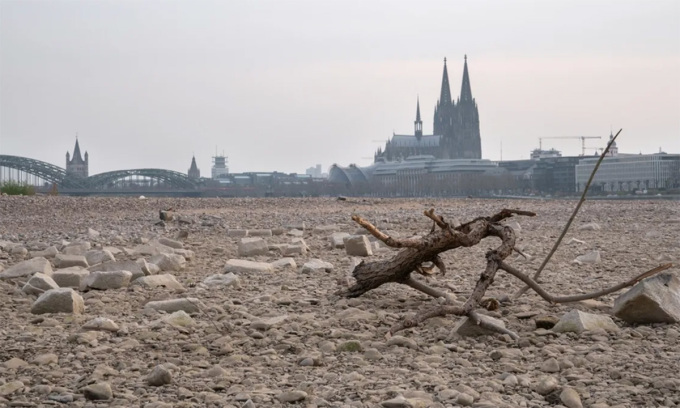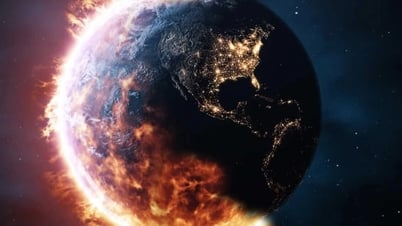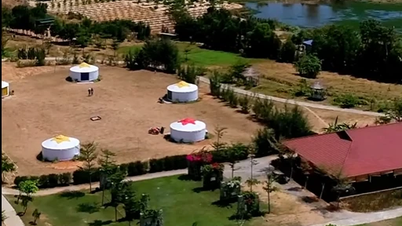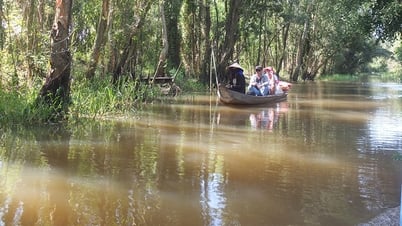Although we are not in danger of running out of seawater, which covers 70% of the Earth's surface, humans still face a shortage of fresh water.

Drought hits the Rhine River near Cologne, Germany. Photo: alfotokunst/Shutterstock
In the coming decades, water scarcity could become one of the biggest problems facing the world. Experts predict that freshwater shortages will increase due to unsustainable use, pollution, population growth, and climate change. While the Earth will not run out of water completely, one problem is becoming increasingly clear: Fresh water will not always be available when and where people need it, IFL Science reported on September 14.
Humans are not in danger of running out of the salty seawater that covers 70% of the Earth’s surface. The problem is the freshwater that humans use for drinking, bathing, and farming. Only 3% of the world’s water is usable, and much of it is trapped in ice or glaciers.
Climate change is increasing the frequency and intensity of droughts, one of the main factors causing the world's water scarcity crisis.
Agriculture also consumes huge amounts of water, accounting for nearly 70% of all freshwater withdrawals globally, according to the World Bank. Experts predict that the world's population will increase in the coming decades, leading to increased demand for food and water.
For many, the water crisis is already underway. According to UN estimates, by 2023, 2 billion people globally, or a quarter of the Earth's population, will lack access to safe drinking water.
Cape Town provides a stark example of what could happen to many cities in the future. In 2018, after years of unsustainable water use, poor management, and climate change, the South African city was predicted to run out of water within months. In addition to warnings about literally running dry taps, residents were asked to reduce their water consumption, take short showers, avoid washing their cars, and flush their toilets as little as possible.
Fortunately, Cape Town narrowly avoided “Day Zero”—the predicted date when the city would run out of water. But the city’s struggles could be a sign of what’s to come for other parts of the world.
In a 2018 BBC analysis, several major cities were identified as potential “hotspots” for water scarcity, including London, Tokyo, Miami and Moscow. Poorer communities and less developed regions will suffer the consequences.
As water becomes increasingly scarce, the world will experience profound social and geopolitical changes. Researchers say climate change and water scarcity could increase the risk of conflict, with countries and organizations competing for access to water. An estimated 700 million people could be displaced by severe water scarcity by the end of the decade, leading to a major shift in global migration.
Thu Thao (According to IFL Science )
Source link



![[Photo] President Luong Cuong attends the inauguration of the international container port in Hai Phong](https://vphoto.vietnam.vn/thumb/1200x675/vietnam/resource/IMAGE/2025/5/13/9544c01a03e241fdadb6f9708e1c0b65)



![[Photo] Prime Minister Pham Minh Chinh meets with US business representatives](https://vphoto.vietnam.vn/thumb/1200x675/vietnam/resource/IMAGE/2025/5/13/5bf2bff8977041adab2baf9944e547b5)






























































































Comment (0)